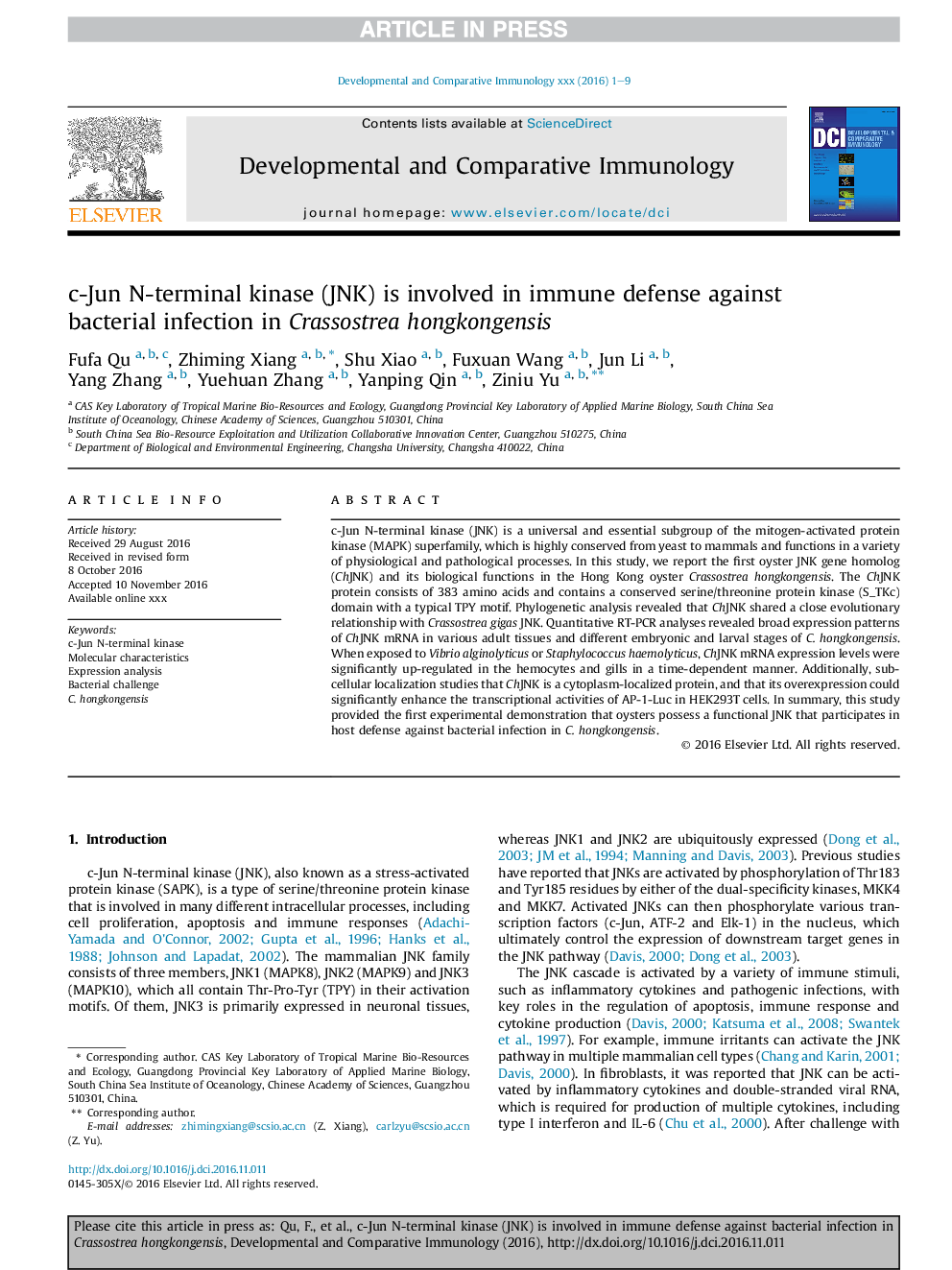| Article ID | Journal | Published Year | Pages | File Type |
|---|---|---|---|---|
| 5540210 | Developmental & Comparative Immunology | 2017 | 9 Pages |
Abstract
c-Jun N-terminal kinase (JNK) is a universal and essential subgroup of the mitogen-activated protein kinase (MAPK) superfamily, which is highly conserved from yeast to mammals and functions in a variety of physiological and pathological processes. In this study, we report the first oyster JNK gene homolog (ChJNK) and its biological functions in the Hong Kong oyster Crassostrea hongkongensis. The ChJNK protein consists of 383 amino acids and contains a conserved serine/threonine protein kinase (S_TKc) domain with a typical TPY motif. Phylogenetic analysis revealed that ChJNK shared a close evolutionary relationship with Crassostrea gigas JNK. Quantitative RT-PCR analyses revealed broad expression patterns of ChJNK mRNA in various adult tissues and different embryonic and larval stages of C. hongkongensis. When exposed to Vibrio alginolyticus or Staphylococcus haemolyticus, ChJNK mRNA expression levels were significantly up-regulated in the hemocytes and gills in a time-dependent manner. Additionally, subcellular localization studies that ChJNK is a cytoplasm-localized protein, and that its overexpression could significantly enhance the transcriptional activities of AP-1-Luc in HEK293T cells. In summary, this study provided the first experimental demonstration that oysters possess a functional JNK that participates in host defense against bacterial infection in C. hongkongensis.
Related Topics
Life Sciences
Biochemistry, Genetics and Molecular Biology
Developmental Biology
Authors
Fufa Qu, Zhiming Xiang, Shu Xiao, Fuxuan Wang, Jun Li, Yang Zhang, Yuehuan Zhang, Yanping Qin, Ziniu Yu,
